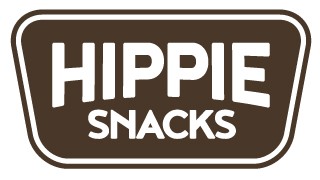

IKE Enterprises Inc, dba: Left Coast Naturals, Hippie Snacks, Left Coast Organics, et al.

British Columbia, Canada
January 2012
Food products
Manufacturing
Canada
Hippie Snacks and its parent company, Left Coast Naturals, is proud to be a founding Canadian B Corporation. We put our “Hippie Twist” on traditional snacks with real, whole food ingredients you can pronounce. As North America’s first distributor with a formal non-GMO policy, Left Coast Naturals distributes over 300 bulk items and 30 brands in Western Canada, including our own – Hippie Snacks and Left Coast Organics. From our supplier selection process, green employee commuting bonuses, and renewably powered facility, we’re always looking for new ways to reduce our impact. Sustainable purchasing and operations is baked into our company DNA on the West Coast of Canada. We believe that food made right can make the world a better place on many levels. For more information, please visit https://www.hippiesnacks.com/our-values/b-corp-certified/
Overall B Impact Score
Governance 15.3
Governance evaluates a company's overall mission, engagement around its social/environmental impact, ethics, and transparency. This section also evaluates the ability of a company to protect their mission and formally consider stakeholders in decision making through their corporate structure (e.g. benefit corporation) or corporate governing documents.
What is this? A company with an Impact Business Model is intentionally designed to create a specific positive outcome for one of its stakeholders - such as workers, community, environment, or customers.
Workers 23.2
Workers evaluates a company’s contributions to its employees’ financial security, health & safety, wellness, career development, and engagement & satisfaction. In addition, this section recognizes business models designed to benefit workers, such as companies that are at least 40% owned by non-executive employees and those that have workforce development programs to support individuals with barriers to employment.
Community 24.3
Community evaluates a company’s engagement with and impact on the communities in which it operates, hires from, and sources from. Topics include diversity, equity & inclusion, economic impact, civic engagement, charitable giving, and supply chain management. In addition, this section recognizes business models that are designed to address specific community-oriented problems, such as poverty alleviation through fair trade sourcing or distribution via microenterprises, producer cooperative models, locally focused economic development, and formal charitable giving commitments.
What is this? A company with an Impact Business Model is intentionally designed to create a specific positive outcome for one of its stakeholders - such as workers, community, environment, or customers.
Environment 30.7
Environment evaluates a company’s overall environmental management practices as well as its impact on the air, climate, water, land, and biodiversity. This includes the direct impact of a company’s operations and, when applicable its supply chain and distribution channels. This section also recognizes companies with environmentally innovative production processes and those that sell products or services that have a positive environmental impact. Some examples might include products and services that create renewable energy, reduce consumption or waste, conserve land or wildlife, provide less toxic alternatives to the market, or educate people about environmental problems.
What is this? A company with an Impact Business Model is intentionally designed to create a specific positive outcome for one of its stakeholders - such as workers, community, environment, or customers.
Customers 3.9
Customers evaluates a company’s stewardship of its customers through the quality of its products and services, ethical marketing, data privacy and security, and feedback channels. In addition, this section recognizes products or services that are designed to address a particular social problem for or through its customers, such as health or educational products, arts & media products, serving underserved customers/clients, and services that improve the social impact of other businesses or organizations.